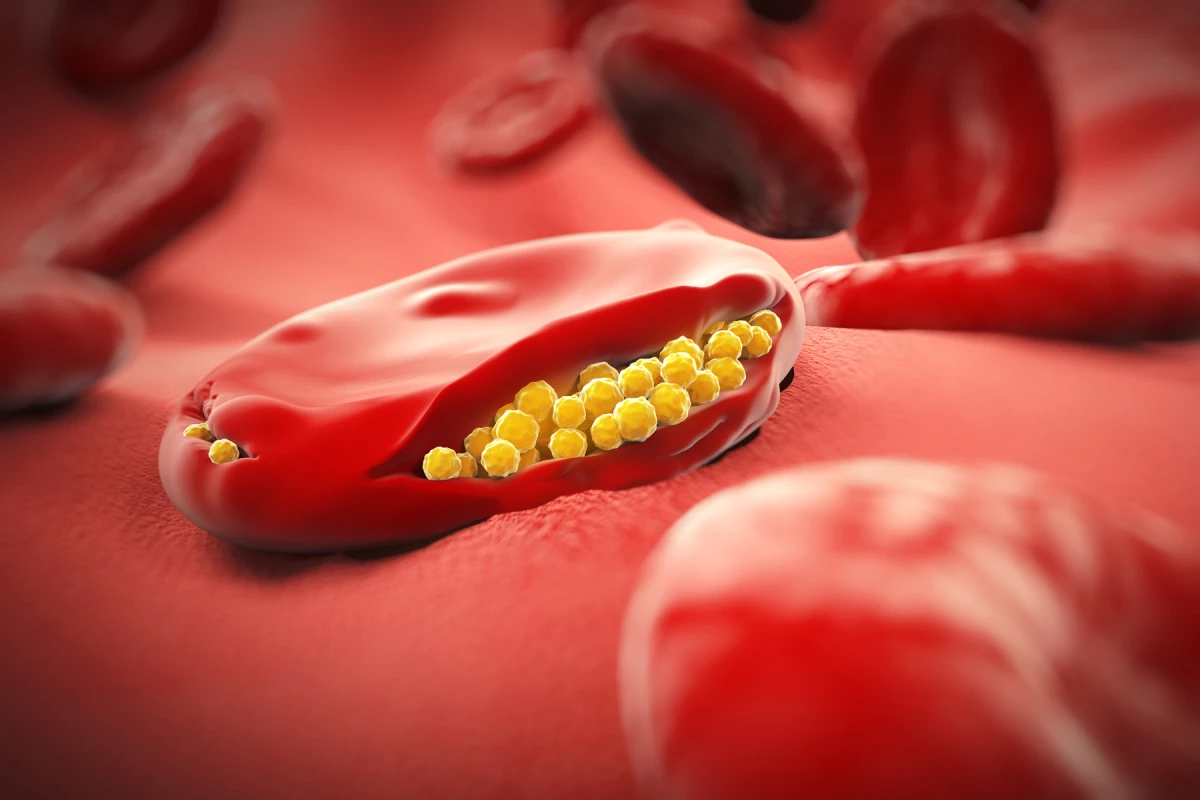It’s not often that inflammation gets a good rap. It’s been linked to heart disease, diabetes, cancer, and autoimmune diseases. But a new study may have uncovered a positive use for the body’s natural response to irritants. Researchers have found that inflammation leads to changes in the makeup of blood plasma that slow the growth of the parasites that cause malaria. They hope their discovery may one day be used to control or even prevent the disease.
Malaria infection develops cyclically. After a bite from a mosquito infected with Plasmodium parasites, the parasites first infect liver cells as sporozoites and mature into schizonts, which rupture and release daughter parasites called merozoites. The merozoites then infect red blood cells, where they mature from trophozoites into schizonts, rupture the cells and release merozoites, which continue the cycle by invading other red blood cells.
Using a mouse model, a team led by researchers from the Doherty Institute in Melbourne and the Kirby Institute in Sydney found that when the immune system triggered inflammation, it altered the chemical composition of the plasma, creating inhibitory factors that directly impaired the malaria parasites’ maturation during the trophozoite stage in red blood cells.
“First, we discovered that inflammation in the body prevented the early stage of the parasites from maturing,” said Ashraful Haque, the study’s corresponding author. “We also noticed that inflammation triggered significant changes in the composition of the plasma – we were actually quite surprised by the magnitude of these changes. As we dug deeper, we found substances in the altered plasma that, we believe, are what may inhibit parasite growth in the body.”
Using genome sequencing, the researchers saw that after four hours circulating in the altered plasma, the trophozoites had adjusted their genetic and protein activity, leading to slower maturation.
“Parasites residing in red blood cells rapidly sense and respond to their new environment, showing fascinating adaptability,” said study co-author David Khoury. “Using cutting-edge genome sequencing technology, we observed that even after just four hours in this changed plasma, the parasites adjusted their genetic and protein activity, resulting in slower maturation within red blood cells. It’s almost like the parasites actively sense an inhospitable host environment and as a result, trigger a coping mechanism.”
The study’s findings suggest a mechanism by which the development of the disease can be slowed, which, the researchers say, offers potential benefits.
“This study, while based on animal models, broadens our understanding of malaria,” said co-author Miles Davenport. “It provides a foundation for further investigations into the specific mechanisms involved in the modulation of parasite maturation by inflammation and opens avenues for future studies to explore the identified inhibitory factors, genetic changes and their implications for malaria development. Ultimately, our work aims to, one day, inform the development of potential new strategies to control, prevent and reduce the burden of malaria, which affects over 240 million people globally.”
The release of the current study is timely. In the US, in the last few months, Florida and Texas have reported eight malaria cases, the first locally acquired cases since 2003. Health experts have put the resurgence down to worsening climate change and an uptick in international travel since the relaxation of COVID-19 restrictions, and urge health professionals to be vigilant. Malaria can lead to severe health problems such as seizures, brain damage, difficulty breathing, organ failure and death if left untreated.
The study was published in the journal mBio.
Source: Doherty Institute





